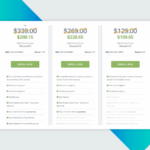6 Mistakes to Avoid When Taking a Student Loan for Real Estate Courses: Navigating the world of real estate education often requires financial assistance, but securing a student loan for real estate courses can be fraught with pitfalls. Understanding the potential challenges beforehand is crucial for avoiding costly mistakes and ensuring a smoother path to your career goals.
This guide illuminates six common errors to sidestep, empowering you to make informed decisions and achieve financial stability throughout your real estate journey.
From overlooking your current financial standing to neglecting the crucial return on investment (ROI) analysis, the path to securing a real estate education loan can be complex. This article breaks down these crucial aspects, offering practical advice and actionable steps to help you navigate the process successfully. We’ll explore budgeting techniques, loan option comparisons, responsible borrowing strategies, and the importance of seeking professional guidance.
By understanding these six key areas, you can significantly improve your chances of a successful and financially sound real estate education.
Ignoring Your Financial Situation Before Applying
Embarking on a real estate career is exciting, but let’s face it – the tuition fees can feel like a hefty down payment on a slightly less glamorous property: your future self’s financial freedom. Ignoring your current financial landscape before diving headfirst into student loans is akin to buying a fixer-upper without checking the plumbing – you might end up with a bigger mess than you bargained for.
A realistic budget is your compass, guiding you toward a financially sound future, not a swamp of debt.Before you sign those loan documents with the enthusiasm of a first-time homebuyer, it’s crucial to create a comprehensive budget. This isn’t about scrimping and saving every penny; it’s about understanding your current financial reality and projecting how a student loan will impact it.
This involves a careful assessment of your income, expenses, and the potential monthly repayment amount of your loan. Failing to do so can lead to a financial hangover that lasts longer than your real estate course.
Calculating Monthly Loan Repayments and Assessing Affordability
Calculating your monthly loan repayment isn’t rocket science, but it does require some number-crunching. You’ll need to know the total loan amount, the interest rate, and the loan term (the number of years you have to repay the loan). Many online loan calculators are available, making this process remarkably simple. Simply input your loan details, and the calculator will generate an estimate of your monthly payment.
Remember, this is an estimate; your actual payment might vary slightly depending on the lender and any additional fees. Once you have this figure, compare it to your monthly income and expenses to determine affordability. If the repayment amount significantly impacts your ability to meet your other financial obligations, it might be wise to reconsider the loan amount or explore alternative financing options.
Consider this: If your monthly repayment is more than 20% of your monthly net income, you’re entering risky territory. This doesn’t mean it’s impossible, but it does demand careful consideration.
Budgeting Tools and Resources
Navigating the world of personal finance can feel like navigating a labyrinth, but fear not! Several tools and resources can help you create and manage a budget effectively. Budgeting apps, such as Mint or YNAB (You Need A Budget), allow you to track your income and expenses automatically, providing valuable insights into your spending habits. Many banks and credit unions offer free online budgeting tools as well.
These tools can categorize your expenses, highlight areas where you might be overspending, and even project your future financial situation based on your current spending patterns. Utilizing these resources can transform the budgeting process from a dreaded chore into a proactive strategy for financial success.
Sample Budget Table
It’s always helpful to visualize your finances. Here’s a sample budget table demonstrating how to allocate income, expenses, and loan repayments:
| Income | Expenses | Loan Repayment | Remaining Funds |
|---|---|---|---|
| $3,000 (Monthly Salary) | $1,500 (Rent, Utilities, Groceries) | $500 (Student Loan Payment) | $1,000 |
Remember, this is just a sample; your actual budget will vary depending on your individual circumstances. The key is to create a budget that accurately reflects your income and expenses and allows for sufficient funds to cover your loan repayments without jeopardizing your financial stability. A realistic budget is not a restriction; it’s a roadmap to financial freedom.
Not Researching Different Loan Options
Embarking on the thrilling journey of real estate education requires careful financial planning, and this often involves navigating the sometimes-bewildering world of student loans. Failing to research your loan options thoroughly is like trying to build a house without a blueprint – chaotic and potentially disastrous. Let’s explore the different types of loans available and their unique quirks to help you avoid becoming another statistic in the “loan regret” hall of fame.Choosing the right student loan is crucial for funding your real estate courses.
A poorly chosen loan can significantly impact your post-graduation financial health, potentially turning your dream career into a financial nightmare. Let’s dissect the key differences between federal and private loans, and the intricacies of fixed versus variable interest rates.
Federal vs. Private Student Loans for Real Estate Courses
Federal student loans, offered by the government, generally come with more borrower protections than private loans. These protections often include flexible repayment plans, deferment options in times of financial hardship (think: unexpectedly high avocado toast expenses), and income-driven repayment plans. However, federal loans may have lower borrowing limits than private loans. Private loans, on the other hand, are offered by banks and credit unions and can often provide higher loan amounts.
However, they typically lack the same borrower protections as federal loans, and interest rates can be significantly higher, especially for those with less-than-stellar credit. Think of it as the difference between a cozy, well-insulated government-subsidized apartment and a luxury penthouse with a hefty monthly rent – both serve the purpose, but one comes with more security.
- Federal Loans: Generally lower interest rates, flexible repayment options, and borrower protections. However, borrowing limits may be lower.
- Private Loans: Potentially higher loan amounts, but usually higher interest rates and fewer borrower protections. Credit history significantly impacts approval and interest rates.
Fixed vs. Variable Interest Rates
The choice between a fixed and variable interest rate can significantly impact your total loan cost. A fixed interest rate remains the same for the life of the loan, providing predictability and budgeting ease. A variable interest rate, however, fluctuates with market conditions. While it might start lower, it could rise unexpectedly, leading to higher monthly payments and a larger overall loan cost.
Think of it like choosing between a steady, reliable salary and a high-risk, high-reward commission-based job – both can be successful, but one offers more stability.
- Fixed Interest Rate: Predictable monthly payments, easier budgeting, and less risk of unexpected increases.
- Variable Interest Rate: Potentially lower initial interest rate, but with the risk of significant increases over time, making budgeting more challenging.
Hidden Fees and Charges
Loan providers often include various fees, some quite sneaky. Origination fees (charged by the lender for processing the loan), late payment fees, and prepayment penalties (for paying off the loan early) can significantly increase your total loan cost. Always carefully review the loan documents and compare fees across different lenders before signing anything. Imagine buying a car – the sticker price is only the beginning.
Unexpected fees can quickly inflate the total cost. Reading the fine print can save you from financial surprises.
Overborrowing for the Courses
Let’s face it, real estate courses can be pricey. The allure of a lucrative career in real estate is strong, but taking on more debt than absolutely necessary for your education is a recipe for financial indigestion. Overborrowing can lead to a long and potentially painful journey of repayment, significantly impacting your ability to enjoy the fruits of your hard-earned real estate expertise.
Think of it as buying a luxury yacht before you’ve even passed your sailing test – it might look impressive, but it’s not exactly practical.Overborrowing for real estate courses can have severe long-term implications. The weight of substantial student loan debt can hinder your ability to save for a down payment on your own property, invest in additional real estate ventures, or even comfortably afford everyday living expenses.
High interest rates can transform a manageable debt into a financial monster, leaving you struggling to keep your head above water, financially speaking. Imagine the irony: you’re learning to navigate the complexities of the real estate market, yet you’re drowning in debt.
Alternative Financing Options
Before you dive headfirst into a mountain of student loans, explore alternative funding avenues. Scholarships, often overlooked gems, can provide a significant reduction in your overall loan burden. Many organizations offer scholarships specifically for students pursuing real estate-related fields. Grants, another form of financial aid that doesn’t require repayment, are also available from various sources, including government agencies and private foundations.
Don’t underestimate the power of part-time employment; even a few hours a week can make a substantial difference in managing your educational expenses. The extra income can be used to directly offset the cost of tuition, or to reduce the amount you need to borrow.
A Hypothetical Scenario: The Case of the Over-Leveraged Learner
Let’s imagine Brenda, a bright and ambitious aspiring real estate agent. She enthusiastically takes out a $50,000 student loan to cover her real estate courses, despite needing only $30, This extra $20,000 in debt, accumulating interest over several years, could translate into thousands of extra dollars in repayment costs. This debt burden might delay Brenda’s ability to save for a down payment on her first investment property by several years, potentially costing her significant long-term gains in the real estate market.
Her extra $20,000 could have been used for a down payment or for investing in additional learning materials or networking opportunities. Instead, she’s now juggling high monthly payments, limiting her ability to build wealth. Brenda’s story serves as a cautionary tale: responsible borrowing is key to financial success in the long run.
Failing to Understand Loan Repayment Terms
Embarking on a real estate career is exciting, but navigating the often-convoluted world of student loan repayment can feel like traversing a minefield of confusing jargon and unexpected costs. Understanding your repayment options is crucial to avoiding a financial hangover that could last longer than your coursework. Let’s demystify this process and ensure your future self thanks you (and doesn’t send you angry postcards).
Student loan repayment isn’t a one-size-fits-all affair. Several repayment plans exist, each with its own set of advantages and disadvantages, impacting your monthly payments and total interest paid. Choosing the wrong plan can significantly increase your overall cost, turning your dream of a lucrative real estate career into a nightmare of debt. Ignoring this critical aspect can lead to financial stress and potentially derail your career aspirations before they even begin.
Different Repayment Plans and Their Implications
Several repayment plans are typically available for federal student loans, including Standard, Extended, Graduated, and Income-Driven Repayment (IDR) plans. The Standard Repayment Plan involves fixed monthly payments over a 10-year period. An Extended Repayment Plan stretches those payments over a longer timeframe (up to 25 years), lowering monthly payments but increasing total interest paid. Graduated Repayment plans start with lower monthly payments that gradually increase over time, while IDR plans tie your monthly payments to your income and family size, offering potentially lower payments but potentially extending the repayment period significantly.
Private student loans may offer different repayment options, so it’s essential to carefully review the terms of your loan agreement.
Consequences of Defaulting on Student Loan Payments
Defaulting on your student loans is akin to a financial nuclear winter. The consequences are severe and far-reaching. Your credit score will take a significant hit, making it difficult to obtain loans for a mortgage, car, or even a credit card in the future. Wage garnishment, tax refund offset, and even legal action are all possibilities. In short, defaulting can severely damage your financial health and future opportunities, making it far more challenging to achieve your real estate goals.
Avoiding default is paramount to your long-term financial well-being.
Strategies for Managing Student Loan Repayments Effectively
Effective student loan management requires proactive planning and discipline. Creating a realistic budget that accounts for your loan payments is the first step. Explore options like refinancing to potentially lower your interest rate, thereby reducing your total interest paid. Consider making extra payments when possible to accelerate your loan payoff. Don’t hesitate to contact your loan servicer to discuss your options and explore potential hardship programs if you encounter unexpected financial difficulties.
Remember, open communication is key to avoiding a financial crisis.
Example Repayment Schedule
| Repayment Plan | Monthly Payment | Loan Term (Years) | Total Interest Paid |
|---|---|---|---|
| Standard | $500 | 10 | $6,000 |
| Extended | $300 | 20 | $12,000 |
| Graduated | $350 (increasing annually) | 10 | $7,500 |
| Income-Driven (Example) | $200 | 25 | $15,000 |
Note
This is a simplified example, and actual repayment amounts will vary based on the loan amount, interest rate, and individual circumstances. Consult with a financial advisor for personalized advice.*
Neglecting the Return on Investment (ROI) of Real Estate Courses: 6 Mistakes To Avoid When Taking A Student Loan For Real Estate Courses

Before you leap into a mountain of student loan debt for real estate courses, it’s crucial to don your metaphorical financial detective hat and investigate the potential return on your investment. Otherwise, you might find yourself house-poor, even before you own a house! Failing to assess the potential payoff could leave you with a hefty bill and a career path less traveled than you’d hoped.
Let’s illuminate the path to a financially savvy real estate future.Investing in education is generally a good thing, but like any investment, real estate courses need careful consideration of their potential ROI. This means evaluating the potential increase in your earning capacity against the cost of the courses and the associated loan repayments. A thorough analysis is essential to ensure your investment yields a positive return, preventing a potentially disastrous financial situation.
Career Paths and Salary Ranges in Real Estate
The real estate industry offers a variety of career paths, each with its own salary range. Understanding these potential earning opportunities is vital for assessing the ROI of your investment in education. For example, a real estate agent’s income can vary greatly depending on experience, location, and sales performance, ranging from a modest salary supplemented by commission to a substantial six-figure income for top performers.
Real estate brokers, who typically manage teams of agents, command higher salaries reflecting their leadership roles and broader responsibilities. Other roles such as property managers, appraisers, and real estate developers all have varying salary expectations based on experience and location. A quick online search of average salaries in your region for these positions can provide a more accurate picture.
Comparing ROI of Real Estate Courses to Alternative Career Paths
To truly understand the value proposition of real estate courses, it’s beneficial to compare their potential ROI with alternative career paths requiring similar levels of education and investment. For instance, let’s say you’re considering a real estate licensing course costing $5,000 with a potential increase in earning power of $10,000 annually after obtaining your license. Compare that to a different field, like advanced coding, where a comparable investment in education might yield a significantly higher annual income increase.
A thorough cost-benefit analysis across various options is crucial before committing to significant debt.
Hypothetical Scenario: ROI and Loan Repayment
Let’s imagine Sarah takes out a $10,000 student loan to fund a real estate course. The course promises a substantial increase in earning potential, leading to an extra $15,000 annually after completing the program. However, the loan has a 5% interest rate, requiring monthly repayments over five years. While Sarah’s increased income is significant, the loan repayment will eat into her earnings.
To determine the true ROI, we need to subtract the total loan repayment (principal plus interest) from the total additional income earned over the five years. If the remaining amount is positive, then the investment was worthwhile; otherwise, she might find herself in a challenging financial situation. This simple scenario highlights the importance of carefully calculating all costs and projected income before making a decision.
Consider using a loan amortization calculator to determine your monthly payments and total interest paid. Remember to factor in all expenses, not just tuition.
Not Seeking Professional Financial Advice
Embarking on the thrilling journey of real estate education often involves navigating the sometimes-treacherous waters of student loans. While the allure of lucrative real estate careers is undeniable, neglecting to secure expert financial guidance can transform your dream into a financial nightmare faster than a poorly-negotiated property deal. Think of a financial advisor as your real estate investing Sherpa, guiding you through the snowy peaks of debt and into the sunny valleys of financial freedom.Consulting a financial advisor before taking out student loans for real estate courses offers several crucial advantages.
A seasoned advisor provides an objective perspective, free from the often-rosy projections presented by loan providers. They can help you analyze your current financial situation, assess the potential return on investment of your chosen courses, and determine whether a student loan is even necessary or the best option for your specific circumstances. This prevents impulsive decisions that could leave you drowning in debt with little to show for it.
Imagine the horror of finding yourself burdened by significant loan repayments, only to discover the courses didn’t quite live up to their promises!
Questions Students Should Ask a Financial Advisor
Before meeting with a financial advisor, it’s helpful to prepare a list of pertinent questions. This ensures you receive the most tailored and relevant advice. A financial advisor can help you understand the implications of different loan types, repayment plans, and potential long-term financial burdens. They can also provide guidance on budgeting and financial planning to help you manage your debt effectively, helping you avoid the common pitfalls many students fall into.
For example, they might advise against taking on loans that exceed your projected earning potential post-graduation. This prevents a scenario where you’re earning less than your loan payments.
Resources for Finding Reputable Financial Advisors, 6 Mistakes to Avoid When Taking a Student Loan for Real Estate Courses
Finding a qualified financial advisor specializing in student loan debt management is easier than you might think. Many reputable organizations offer referral services, connecting you with advisors based on your specific needs and location. Professional associations such as the Certified Financial Planner Board of Standards (CFP Board) and the National Association of Personal Financial Advisors (NAPFA) provide directories of certified professionals.
Online platforms also facilitate searches, allowing you to filter advisors by their expertise, fees, and client reviews. Remember to check credentials and verify licensing before committing to any advisor. Don’t be afraid to interview several advisors before making your decision—find one whose approach and personality resonate with you.
The Process of Obtaining Professional Financial Advice and Associated Costs
The process of obtaining financial advice typically begins with an initial consultation, often free of charge. During this meeting, you’ll discuss your financial goals, current situation, and any concerns. The advisor will then assess your needs and recommend a course of action. The cost of ongoing financial advice varies depending on the advisor’s fees, the complexity of your situation, and the services provided.
Some advisors charge an hourly rate, while others use a percentage-based fee structure. It’s crucial to understand the fee structure upfront to avoid any surprises. Think of it as an investment in your financial future; a small fee now can prevent far larger problems down the line. The peace of mind provided is often invaluable.
Last Word
Securing a student loan for real estate courses presents a significant financial undertaking. By carefully considering your financial situation, researching loan options, and understanding repayment terms, you can mitigate risks and maximize your chances of success. Remember, proactive planning, thorough research, and seeking professional financial advice are invaluable steps in achieving your real estate career aspirations without incurring undue financial strain.
Don’t let these six common mistakes derail your dreams; take control of your financial future today.
Quick FAQs
What happens if I default on my student loan?
Defaulting on your student loan can severely damage your credit score, impacting your ability to obtain loans, credit cards, and even rent an apartment in the future. It can also lead to wage garnishment and tax refund offset.
Are there any government programs to help with real estate education loans?
Depending on your location and eligibility, various government programs may offer grants, scholarships, or subsidized loans specifically for real estate education. Check with your local government agencies and educational institutions for available options.
How long does it typically take to repay a student loan for real estate courses?
Repayment timelines vary depending on the loan type, amount borrowed, and chosen repayment plan. Standard repayment plans can range from 10 to 20 years, while income-driven repayment plans can extend longer.
Can I refinance my student loan after completing my real estate courses?
Yes, refinancing your student loan after completing your courses might be possible to secure a lower interest rate or a more favorable repayment plan. However, eligibility criteria vary among lenders.
What if my real estate career doesn’t pan out as planned?
It’s crucial to have a contingency plan. Before taking out a loan, explore alternative career paths and assess the potential for income generation if your real estate career doesn’t materialize as expected. Having a backup plan can help mitigate financial risk.




